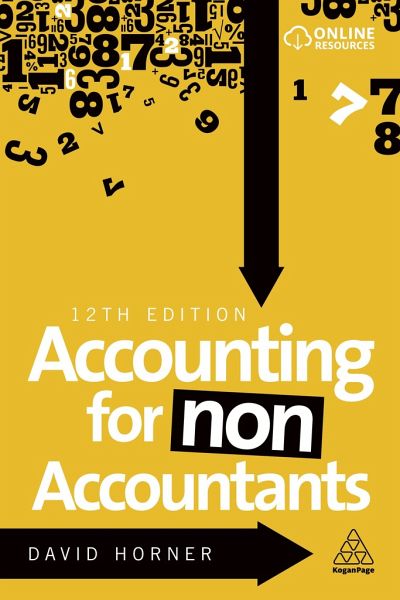
Accounting for Non-Accountants

PAYBACK Punkte
12 °P sammeln!
Accounting has a reputation as a technical and jargon-heavy subject, but there is no reason why those without formal training cannot master the basics of interpreting accounts and making good decisions.Accounting for Non-Accountants assumes no prior knowledge of the subject area and is designed to serve as an introductory text for managers and non-specialists who wish to gain an oversight of the accounting discipline. The book covers both financial and management accounting in sufficient detail to allow data to be interpreted but in a clear and accessible manner so the reader can quickly gain ...
Accounting has a reputation as a technical and jargon-heavy subject, but there is no reason why those without formal training cannot master the basics of interpreting accounts and making good decisions.
Accounting for Non-Accountants assumes no prior knowledge of the subject area and is designed to serve as an introductory text for managers and non-specialists who wish to gain an oversight of the accounting discipline. The book covers both financial and management accounting in sufficient detail to allow data to be interpreted but in a clear and accessible manner so the reader can quickly gain an understanding of the basic principles of the subject area.
Now in its 12th edition, Accounting for Non-Accountants has been fully updated to the latest regulatory requirements including the UK GAAP framework, International Financial Reporting Standards (IFRS) and International Accounting Standards (IAS). The final chapter focuses on the impact of changes in the economic environment on businesses and there are introductions to areas including tax, transfer pricing and creative accounting. This practical guide includes review questions in each chapter, with answers and workings where appropriate, and is supported online by over 200 questions and a glossary to develop a firm understanding of all topics.
Accounting for Non-Accountants assumes no prior knowledge of the subject area and is designed to serve as an introductory text for managers and non-specialists who wish to gain an oversight of the accounting discipline. The book covers both financial and management accounting in sufficient detail to allow data to be interpreted but in a clear and accessible manner so the reader can quickly gain an understanding of the basic principles of the subject area.
Now in its 12th edition, Accounting for Non-Accountants has been fully updated to the latest regulatory requirements including the UK GAAP framework, International Financial Reporting Standards (IFRS) and International Accounting Standards (IAS). The final chapter focuses on the impact of changes in the economic environment on businesses and there are introductions to areas including tax, transfer pricing and creative accounting. This practical guide includes review questions in each chapter, with answers and workings where appropriate, and is supported online by over 200 questions and a glossary to develop a firm understanding of all topics.




